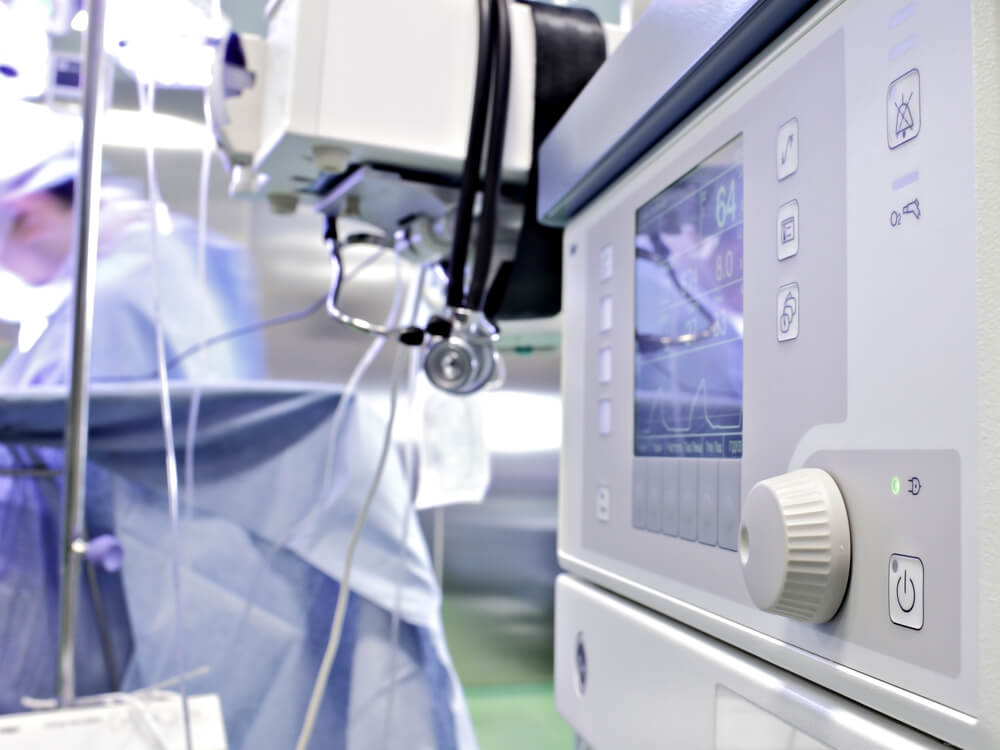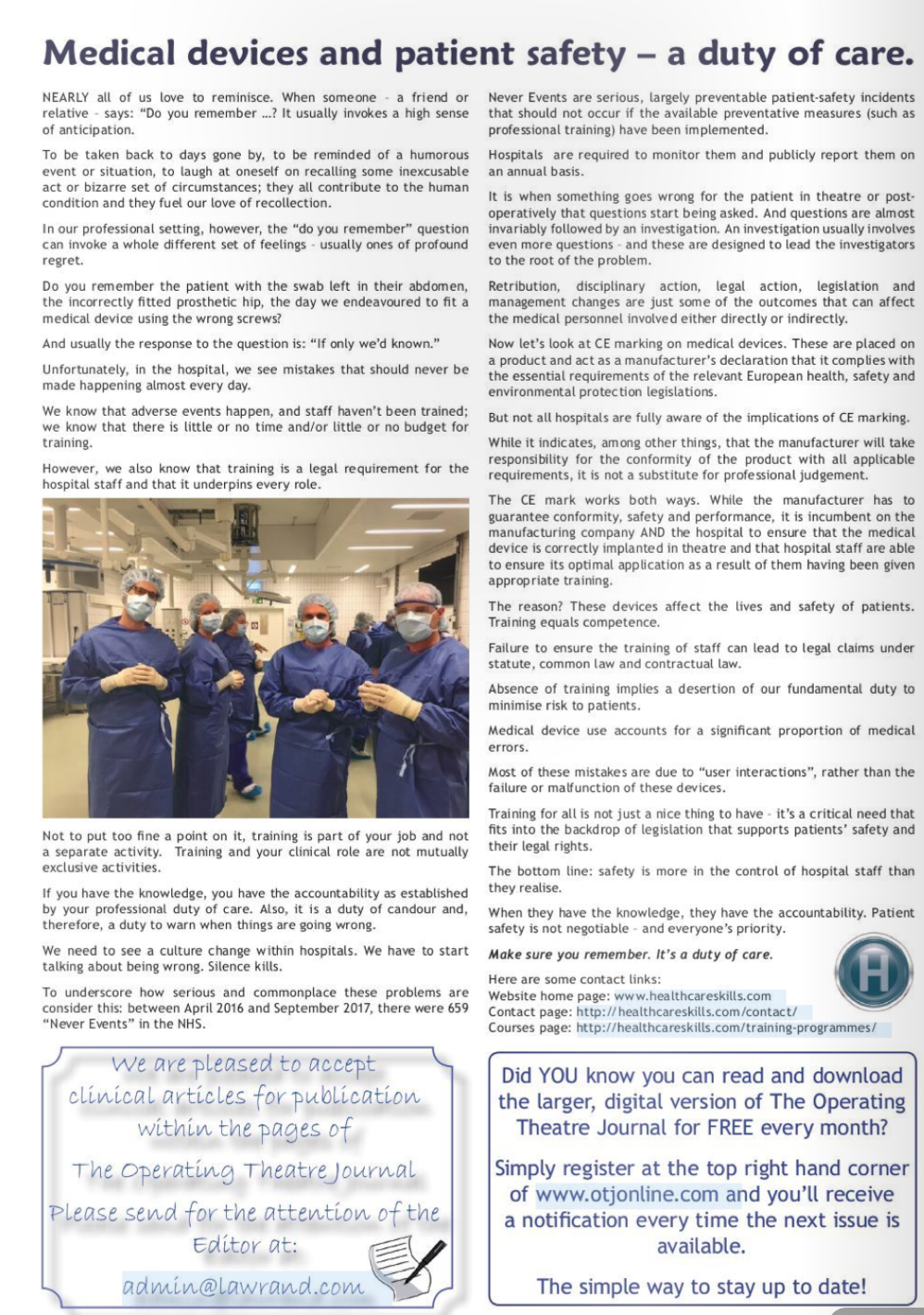NEARLY all of us love to reminisce. When someone – a friend or relative – says: “Do you remember …? It usually invokes a high sense of anticipation.
To be taken back to days gone by, to be reminded of a humorous event or situation, to laugh at oneself on recalling some inexcusable act or bizarre set of circumstances; they all contribute to the human condition and they fuel our love of recollection.
In our professional setting, however, the “do you remember” question can invoke a whole different set of feelings – usually ones of profound regret.
Do you remember the patient with the swab left in their abdomen, the incorrectly fitted prosthetic hip, the day we endeavoured to fit a medical device using the wrong screws?
And usually the response to the question is: “If only we’d known.”
Unfortunately, in the hospital, we see mistakes that should never be made happening almost every day.
We know that adverse events happen, and staff haven’t been trained; we know that there is little or no time and/or little or no budget for training.
However, we also know that training is a legal requirement for the hospital staff and that it underpins every role.
Training is part of your job and not a separate activity
Not to put too fine a point on it, training is part of your job and not a separate activity. Training and your clinical role are not mutually exclusive activities.

When hospital staff have the knowledge, they have the accountability as established by their professional duty of care. Also, it is a duty of candour and, therefore, a duty to warn when things are going wrong.
We need to see a culture change within hospitals. We have to start talking about being wrong. Silence kills.
To underscore how serious and commonplace these problems are, consider this: between April 2016 and September 2017, there were 659 “Never Events” in the NHS. That is more than one a day on average.
Never Events are serious, largely preventable patient-safety incidents that should not occur if the available preventative measures (such as professional training) have been implemented.
Hospitals are required to monitor them and publicly report them on an annual basis.
It is when something goes wrong for the patient in theatre or post-operatively that questions start being asked. And questions are almost invariably followed by an investigation. An investigation usually involves even more questions – and these are designed to lead the investigators to the root of the problem.
Retribution, disciplinary action, legal action, legislation and management changes are just some of the outcomes that can affect the medical/nursing and clinical personnel involved either directly or indirectly.
Failure to ensure the training of staff can lead to legal claims under statute, common law and contractual law. Absence of training implies a desertion of our fundamental duty to minimise risk to patients.
Medical device use accounts for a significant proportion of medical errors. But most of these mistakes are due to “user interactions”, rather than the failure or malfunction of these devices.
Now let’s look at CE marking on medical devices. These are placed on a product and act as a manufacturer’s declaration that it complies with the essential requirements of the relevant European health, safety and environmental protection legislations.
But not all hospitals are fully aware of the implications of CE marking.
While it indicates, among other things, that the manufacturer will take responsibility for the conformity of the product with all applicable requirements, it is not a substitute for professional judgement.
The CE mark works both ways. While the manufacturer has to guarantee conformity, safety and performance, it is incumbent on the manufacturing company AND the hospital to ensure that the medical device is correctly implanted in theatre and that hospital staff are able to ensure its optimal application as a result of them having been given appropriate training.
The reason? These devices affect the lives and safety of patients. Training equals competence.
Training for all is not just a nice thing to have – it’s a critical need that fits into the backdrop of legislation that supports patients’ safety and their legal rights.
The bottom line: safety is more in the control of hospital staff than they realise.
When they have the knowledge, they have the accountability. Patient safety is not negotiable – and everyone’s priority.
Make sure you remember. It’s a duty of care. Patient safety is non-negotiable – and everyone’s priority.
*This article appeared (below) in the March 2018 issue of the Operating Theatre Journal, which can be read online – or in print for a small fee.

E-mail:
Tel: +44 (0) 141 946 6482
Address: Healthcare Skills Training International Ltd
West of Scotland Science Park
Block 7, Kelvin Campus
Glasgow G20 0SP